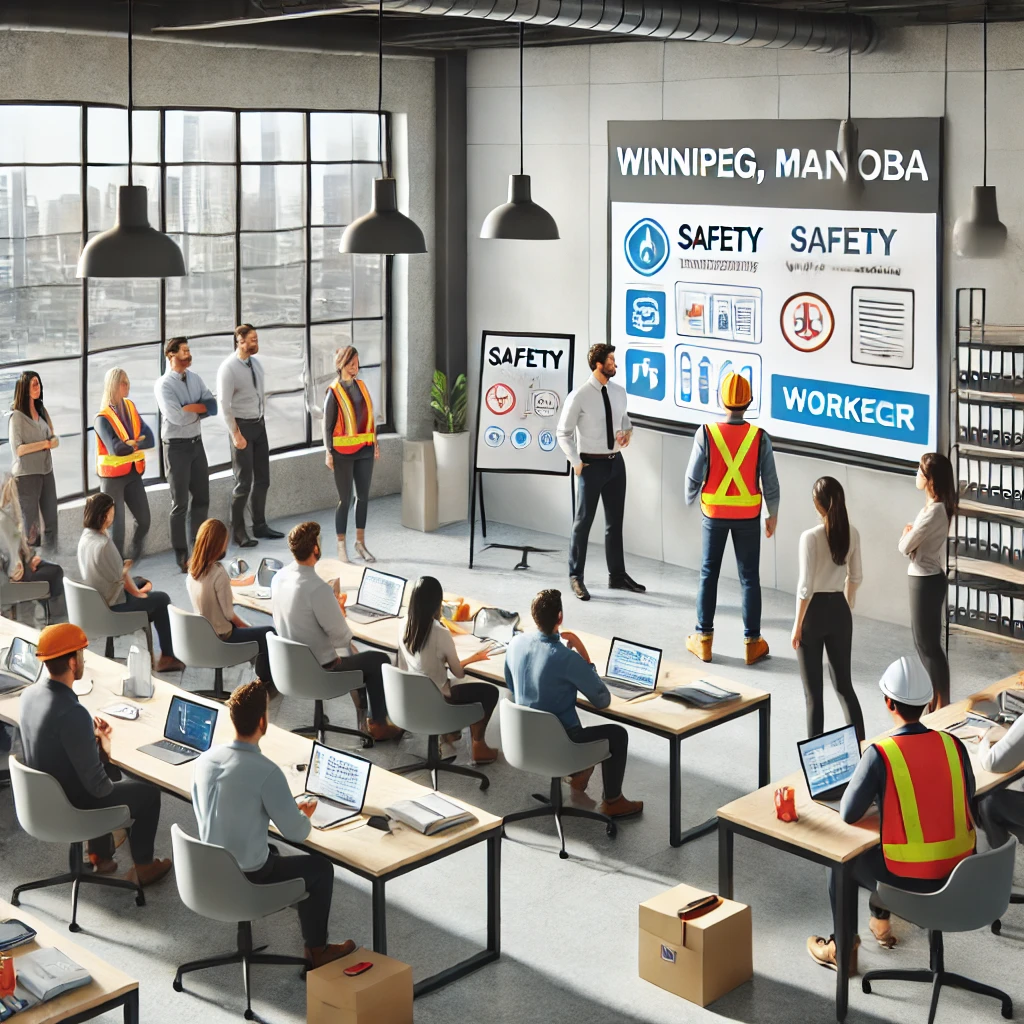Table of Contents
The Importance of Safety Training in the Workplace: A Winnipeg Perspective Safety training is crucial in the workplace, especially in a city like Winnipeg. With its diverse industries and potential hazards, ensuring employees are well-trained in safety protocols is essential. By prioritizing safety training, businesses in Winnipeg can create a secure work environment, minimize accidents, and protect their employees’ well-being. Emphasizing safety training is not only a legal requirement but also a responsible approach that contributes to the overall success and sustainability of businesses in Winnipeg.
Safety First: A Core Value for Winnipeg Workplaces
In Winnipeg, ensuring workplace safety is a crucial responsibility for businesses across all sectors. From construction and manufacturing to healthcare and hospitality, each industry faces unique challenges that require tailored safety training programs. Proper Occupational Health and Safety (OHS) training not only protects employees but also enhances business productivity and compliance with Manitoba’s safety regulations.
Why Safety Training Matters in Winnipeg
Implementing effective safety training programs in Winnipeg workplaces is essential for preventing accidents and ensuring compliance with the Manitoba Workplace Safety and Health Act. Safety training provides employees with the knowledge and skills needed to identify hazards, use protective equipment correctly, and respond effectively to emergencies. For employers, this means fewer workplace injuries, reduced legal liabilities, and a more engaged workforce.
Key Benefits of Safety Training for Winnipeg Businesses
- Reducing Workplace Accidents: Safety training significantly reduces the risk of workplace injuries and accidents, helping to keep Winnipeg’s workforce safe and productive.
- Regulatory Compliance: In Manitoba, businesses must comply with strict safety regulations. Regular safety training ensures that companies stay up-to-date with the latest legal requirements, avoiding fines and penalties.
- Enhancing Employee Morale: A commitment to safety demonstrates that a business values its employees, which can lead to increased job satisfaction and lower turnover rates.
- Cost Reduction: Investing in safety training can reduce the financial burden associated with workplace accidents, including medical costs, compensation claims, and lost productivity.
Tailoring Safety Training for Winnipeg’s Diverse Industries
In Winnipeg, different industries require customized safety training to address their specific risks:
- Construction and Manufacturing: Training should cover equipment handling, fall protection, and chemical safety. These industries are vital to Winnipeg’s growth, making safety a top priority.
- Healthcare: Safety training should include infection control, proper use of personal protective equipment (PPE), and emergency response protocols, essential for Winnipeg’s healthcare facilities.
- Office Environments: Even in office settings, safety training is crucial. Topics like ergonomics, fire safety, and emergency preparedness help create a safer work environment.
Innovative Approaches to Workplace Safety Training in Winnipeg
Winnipeg businesses are adopting innovative approaches to enhance safety training effectiveness:
- Interactive Workshops and Simulations: Hands-on training allows employees to practice responding to real-world scenarios, such as chemical spills or equipment malfunctions, in a controlled environment.
- Online Learning and Virtual Reality (VR) Training: Digital platforms offer flexibility, allowing employees to complete training at their own pace. VR modules provide immersive experiences that help employees visualize and navigate potential hazards.
- Regular Safety Drills: Conducting regular drills, such as fire evacuations or active shooter scenarios, ensures that employees are prepared for emergencies and can respond effectively.
The Role of Leadership in Promoting Safety Training
Strong leadership is key to fostering a safety-first culture in Winnipeg workplaces. Business leaders should:
- Encourage Open Communication: Create an environment where employees feel comfortable reporting safety concerns without fear of reprisal.
- Regularly Review and Update Safety Protocols: Stay current with changing regulations and industry best practices to ensure safety protocols are effective and relevant.
- Recognize and Reward Safe Practices: Acknowledge employees who demonstrate a commitment to safety, reinforcing the importance of following safety procedures.
Building a Safer Workplace in Winnipeg Together
Winnipeg’s commitment to safety training is not just about compliance; it’s about creating a positive workplace culture that prioritizes the health and well-being of every employee. By investing in comprehensive safety training programs, businesses can protect their employees, improve productivity, and contribute to the overall prosperity of the community.
Whether you’re in construction, healthcare, or any other industry, effective safety training is a cornerstone of a successful business in Winnipeg. Let’s work together to make our workplaces safer and more productive.
For more information on workplace safety training in Winnipeg, contact the Manitoba Workplace Safety and Health or visit the Safe Work Manitoba website.
Or visit https://truehealth.prohealthlink.com/
- Safety training in Winnipeg
- Workplace safety Winnipeg
- Winnipeg OHS training
- Manitoba workplace safety
- Winnipeg safety regulations
- Construction safety training Winnipeg
- Healthcare safety training Manitoba
- Office safety training Winnipeg







Write a Reply or Comment: